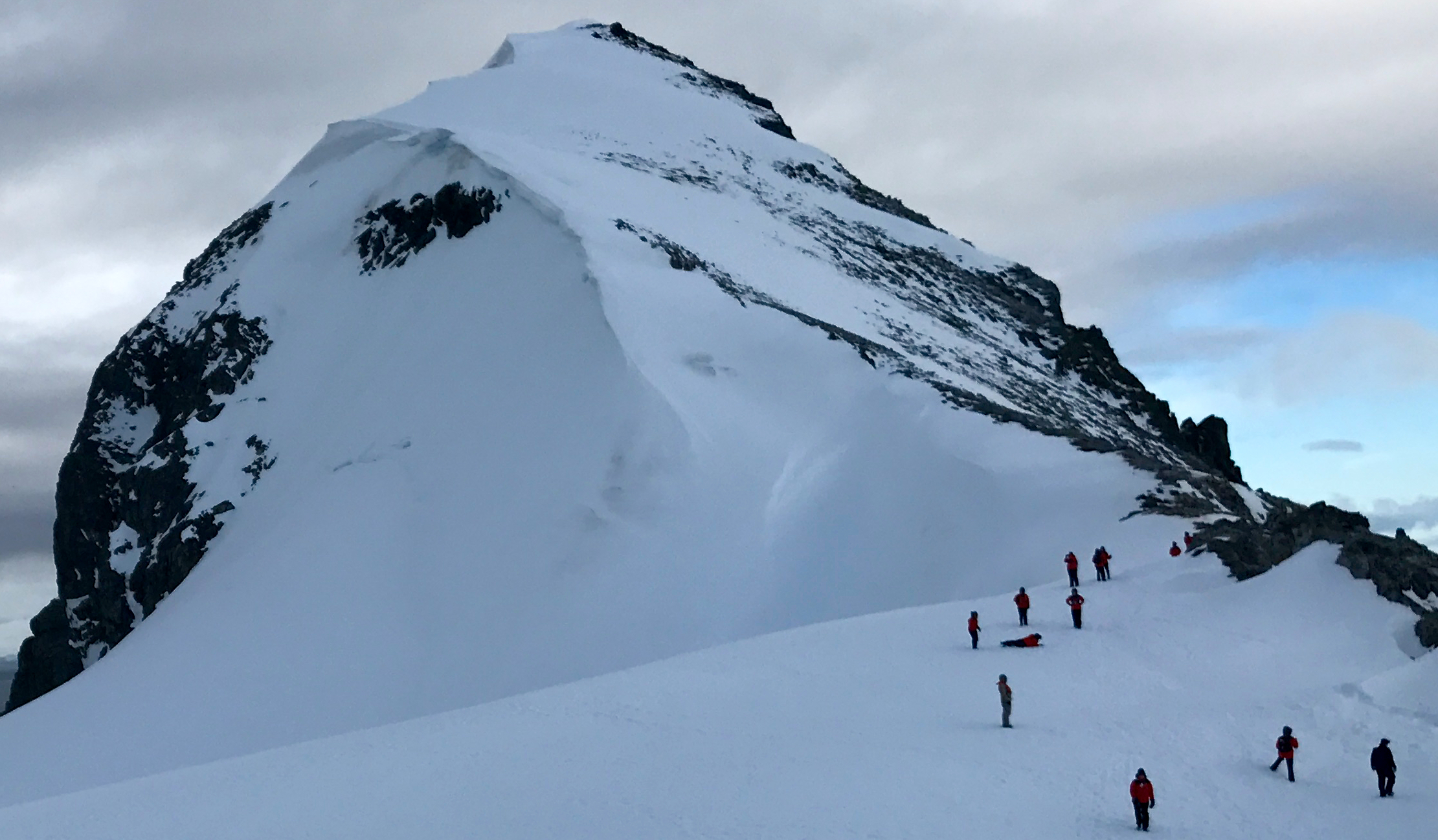Operationalizing Disciplinarity: Insights from Antarctica
Antarctica plays a central role in the global climate system, with climate change feedbacks accelerating apace. This vast, uninhabited white continent also occupies a special place in our collective imagination, as the last continent untarnished by the global race for resource extraction. It simultaneously symbolizes the fruits of global cooperation in science and conservation, thereby embodying both our fears and hopes for the future. Women have historically not been prominent in Antarctic exploration or research, just as they remain almost invisible in senior leadership roles in science and society today. The Homeward Bound Leadership Program aims to upend these paradigms by supporting 1000 women scientists to significantly improve clarity and confidence, developing a shared vision and strategic capability in order to proactively contribute to a sustainable world.
We are nine women with different scientific disciplinary backgrounds from five countries who participated in the first cohort of the Homeward Bound Program in 2016. We occupy roles in the natural, physical, and social sciences, in academia, management consultancy, and government agencies, and are committed to exploring an authentic transdisciplinary approach in our work. We recognize that the important issues for society and the environment involve people; people who are affected by degraded soils and rivers, people who manage or use natural resources on private or public land, and people who themselves have an impact on society and the environment. To understand people’s perspectives, to change people’s behavior, and to create innovative solutions, natural and physical scientists need to genuinely integrate social scientists’ thinking, skills, and approaches into our work. In order to do this, we also need to have some understanding of ourselves.

As the first cohort of Homeward Bound participants, we knew little about what to expect, but we were driven by some common goals. All of us shared a passion for the natural world, a curiosity about Antarctica, and a need to make a contribution—somehow. Our project group, Project 11, focused on multi-, inter-, and transdisciplinary research and how this can be applied to the “wicked problems” of our time, such as climate change. Our skills and experience in working across disciplines and with the broader community varied greatly in the group, as did our disciplines, training, and career stages. However, we were all highly educated women, who enjoyed enough privilege to access both the time and the resources to be able to participate in this program thanks to generous institutions and networks. We were also united in having aspirations to leadership and brave enough to “sign-up” to an untested program.
Antarctica is an ideal place for reflection on our place, purpose, and impact on the planet. Both the setting and these inner explorations set the scene for the research we undertook on ourselves through group autoethnography. Through a process of written reflections and audio interviews we captured what it was like to be on the ice—through our senses, in our shoes, with our minds.
When we finally did meet at the Las Hayas Hotel at the bottom of the world in Ushuaia, Argentina, some felt as though they greeted old friends, while others were still awash from their long journeys. These relationships were tested and strengthened onboard the ship—along with 70 other women—as we explored emotional intelligence, learning styles, and leadership surrounded by majestic icebergs and glistening clear waters.
We had the extreme good fortune to be supported by the Rachel Carson Center for Environment and Society in developing these ideas via their Group Writing Fellowship. So, in July 2018 we reconvened—this time in the lush and delightfully convivial setting of Munich, Germany. Here, we spent two weeks delving into our thoughts and reflections on how Antarctica had spoken to us—and how we may speak for it. We challenged who we were and how we saw things, coded our language, and analyzed what purpose we had in bringing this experience together. We gathered together for a third time at the Arthur Rylah Institute for Environmental Research in Melbourne, Australia, to create the final synthesis. In doing so, we also had the opportunity to reflect on how the experience had changed the way we go about our own research and from this, how we could possibly extend this methodology beyond our own practice. In 2020, as Covid-19 and racial inequalities rock our individual and collective worlds, we continue to work together to bring the fruits of our Antarctic insights into public view, with two journal papers in revision and this blog. The need to operationalize interdisciplinarity to solve the wicked problems we have created has never been more urgent; this is indeed a work of our times.














